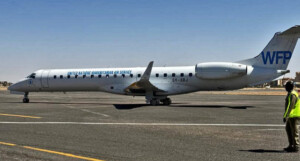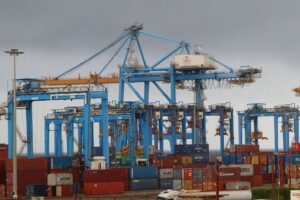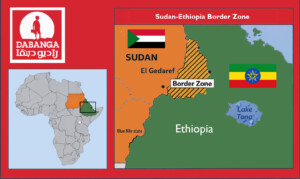Sudan protestors again face tear gas, stun grenades
Sudanese security forces have once again responded to anti-coup demonstrations in the capital Khartoum with volleys of tear gas and stun grenades, as protestors converged on the Republican Palace on Saturday.
 Demonstration in Khartoum yesterday (Photo: SUNA)
Demonstration in Khartoum yesterday (Photo: SUNA)
Sudanese security forces have once again responded to anti-coup demonstrations in the capital Khartoum with volleys of tear gas and stun grenades, as protestors converged on the Republican Palace on Saturday.
Witnesses say that a heavy presence of Sudanese Armed Forces (SAF) and police set up blockades across the main streets of Khartoum, as well as the main Nile bridges that link the main city of Khartoum with Omdurman and Bahri, in anticipation of the marches.
The military junta that seized power in a coup d’état of October 25, also ordered Sudan’s National Telecommunications Corporation (NTC), to restrict internet and telephone, as these are the main channels via which the organising Resistance Committees communicate with the public to coordinate marches. The services were restored later in the day.
It is the second time in a week that pro-democracy protestors have converged on the Republican Palace. The demonstrators included women’s groups, who protested cases of rape, sexual violence and harassment by security forces during the December 19 Marches of the Millions in Khartoum last week, “to condemn the use of sexual and gender based violence to drive women away from demonstrations and silence their voices”.
The Sudanese Doctors Committee reports that after demonstrators who were injured by tear gas cannisters and stun grenades were transferred to hospitals where medics were waiting to treat and casualties, security forces fired tear gas into hospitals, attacking doctors as well as the wounded.
The marches were convened by Resistance Committees across Sudan, to continue the revolution that overthrew the 30-year Al Bashir dictatorship in 2019, and to express their rejection of the military coup d’état of October 25, and the subsequent political agreement, signed by coup leader Gen Abdelfattah El Burhan and Sudan’s Prime Minister Abdallah Hamdok.











 and then
and then